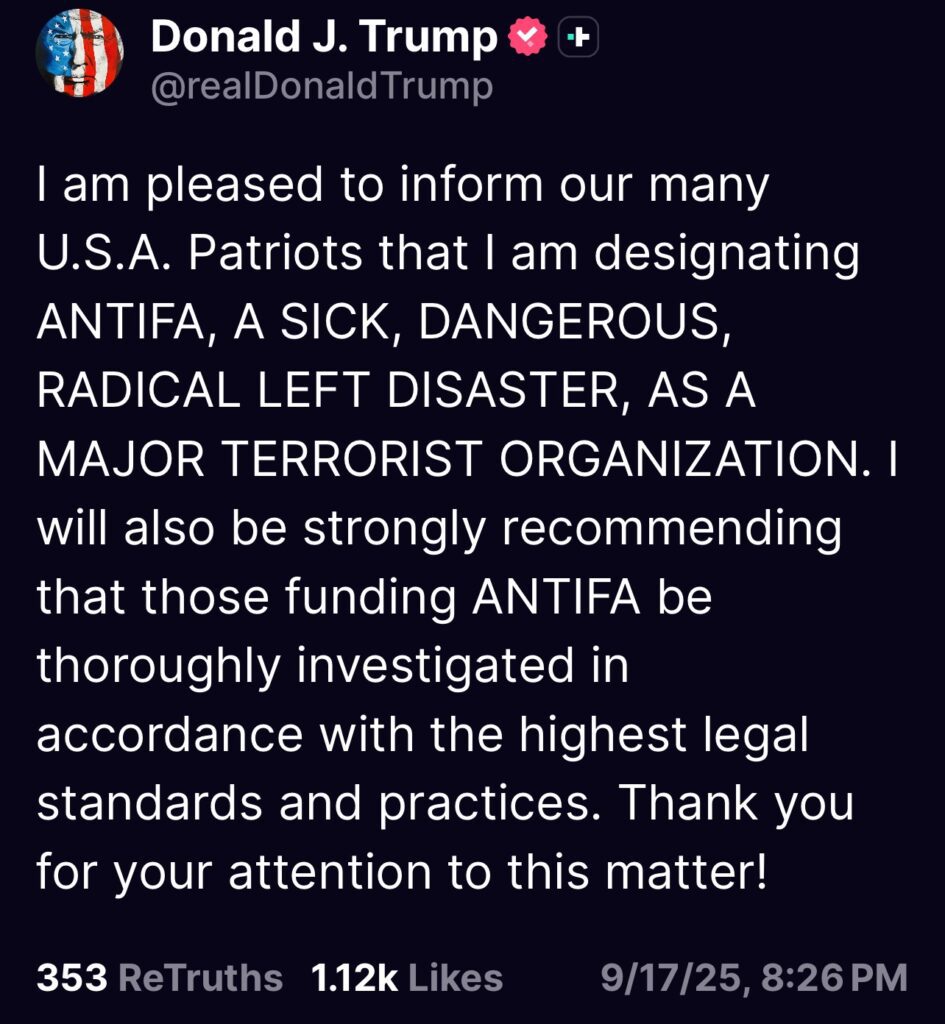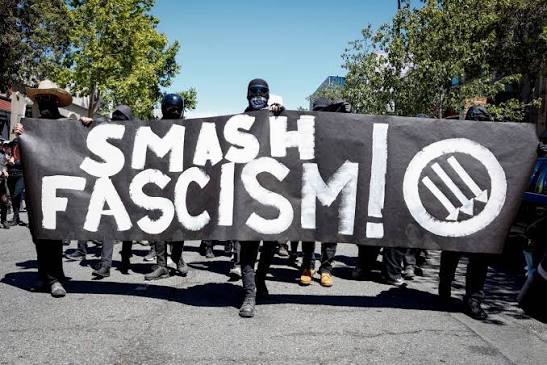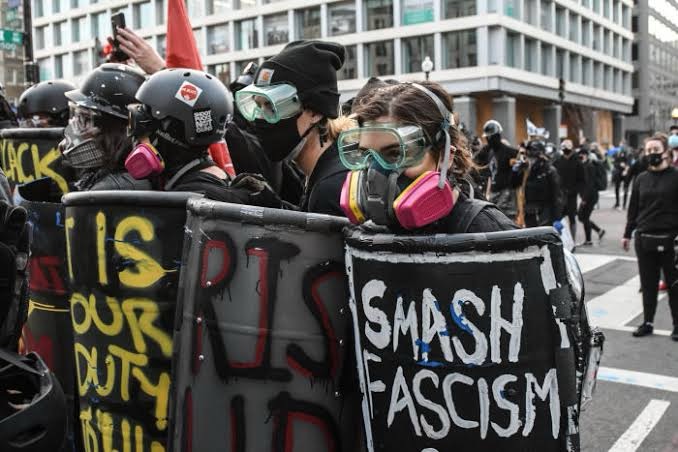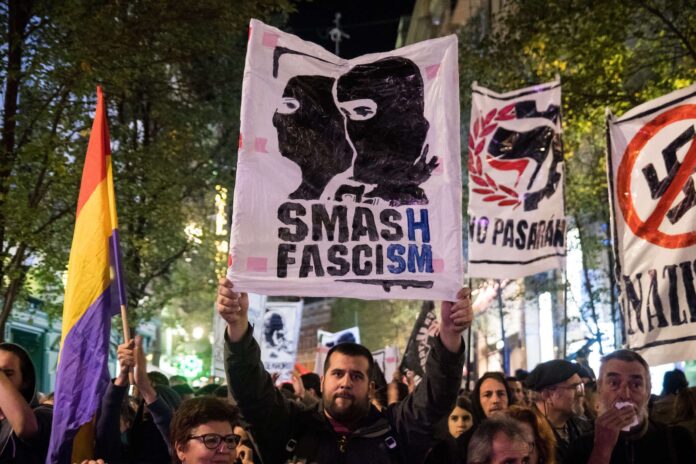September 17, 2025 — President Donald J. Trump announced tonight on Truth Social that he is formally designating ANTIFA as a “major terrorist organization.” In his post, Trump described ANTIFA as “a sick, dangerous, radical left disaster” and said he would be recommending that those funding the movement face investigation under the “highest legal standards and practices.”

The statement immediately reignited debate over the government’s power to classify domestic groups as terrorist organizations, and what such a move would mean for political activism and civil liberties in the United States.
What Is ANTIFA?
The term ANTIFA is short for “anti-fascist.” Unlike structured organizations such as al-Qaeda or ISIS, ANTIFA is not a formal, centralized group. Instead, it is a loose collection of activists and local networks united by opposition to far-right extremism, racism, and authoritarianism.

The roots of the movement date back to Europe in the 1920s and 1930s, when militant leftist groups mobilized against the rise of fascist parties. In the U.S., versions of ANTIFA gained visibility in the late 20th century, often tied to punk and anarchist movements.
In recent years, particularly after the 2017 Charlottesville rally where a counter-protester was killed by a white supremacist, ANTIFA groups became more prominent. Supporters often use direct-action tactics such as protests, counter-demonstrations, and sometimes property destruction. Critics, however, argue that their methods cross into violence and intimidation.
Can the U.S. Government Designate Domestic Groups as Terrorists?
One of the most contentious aspects of Trump’s announcement is its legal foundation. Under U.S. law, the State Department has authority to designate foreign organizations as Foreign Terrorist Organizations (FTOs). This designation carries clear legal consequences, including freezing assets, banning material support, and enabling enhanced surveillance.

However, there is no legal mechanism for designating purely domestic groups as terrorist organizations. Doing so would collide with First Amendment protections for freedom of speech and association. Past attempts to classify domestic political movements as “terrorist” have been struck down or heavily criticized as unconstitutional.
Legal experts note that while the government can prosecute individuals for violent acts or conspiracies, it cannot criminalize broad political affiliation. Any attempt to enforce Trump’s proposed designation could trigger immediate constitutional challenges.
Possible Legal Ramifications
If federal agencies were to act on Trump’s statement:
Investigations of Funding: Trump specifically called for investigating ANTIFA’s funders. While following the money trail of violent acts is legal, targeting donors based on political alignment risks violating free speech and association rights. Expanded Surveillance: A terrorism label could open the door to expanded surveillance powers, potentially placing activists, journalists, or protest groups under scrutiny. Chilling Effect on Protest: Civil liberties organizations warn that branding a loosely defined movement as “terrorist” could deter lawful protest, especially at a time of heightened political polarization.
Already, groups such as the ACLU have previously argued that attempts to classify ANTIFA as terrorists amount to political repression rather than legitimate law enforcement.
Political and National Impact
Trump’s declaration also carries significant political weight. It positions him and his supporters as defenders against what they call “radical left extremism,” while drawing sharp criticism from opponents who see it as an authoritarian tactic to suppress dissent.
The move could deepen partisan divides, particularly as the 2026 midterm elections approach. Lawmakers will likely face pressure to either support or denounce Trump’s statement, potentially shaping national debates around security, civil liberties, and political violence.
Internationally, the designation could also raise eyebrows. The U.S. has historically criticized authoritarian regimes that label domestic opponents as “terrorists” to justify crackdowns. Applying the same label at home may undermine U.S. credibility on human rights abroad.
What Happens Next?
For now, Trump’s statement is more political declaration than enforceable policy. Without an act of Congress or a formal change in federal law, it is unlikely that ANTIFA can be legally designated a terrorist organization. Still, Trump’s call could influence Republican lawmakers and embolden law enforcement agencies to scrutinize left-wing activism more aggressively.
Whether courts would uphold such actions remains an open—and critical—question.











